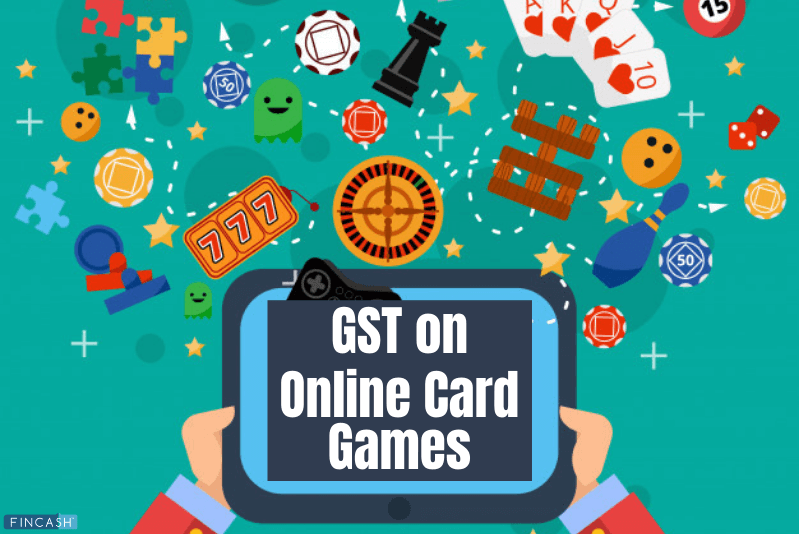Abstract
India’s online gaming market has expanded significantly in recent years. India has emerged as one of the world’s largest online gaming markets. The global market size for online games is expected to grow from US$37.65 billion in 2019 to US$122.05 billion in 2025. Moreover, the industry is estimated to reach US$2 billion in 2025, in terms of rake free earned/GGR.At its 50th meeting on July 11, the GST council proposed to increase the rate of tax from 18% to 28% and, furthermore, the amount at which GST ought to be required. It is proposed to levy a 28% GST on the Contest Entry Amount (CEA) instead of the current levy of 18% on the Gross Gaming Revenue (GGR), considering that there would be no distinction between games of skill and games of chance. While the government thinks online gaming should be taxed as a sin good, various experts think that the policy will lead to the disruption of the industry and have a cascading effect on the whole economy. The overall goal of this paper is to provide historical and prospective background on GST in the online gaming business and some suggestions regarding the new tax policy that should be taken care of before implementing the same. The paper makes an estimate that the policy will lead to a decrease in industrial as well as GST revenue in the long run. The paper also includes case studies from around the world that show how similar tax reforms have affected industries and tax revenues in the past.
Introduction
Legitimately, there exists a clear distinction within the Online gaming industry between games of skill and games of chance. Online gaming comes in three different flavours.
- Esports: These are video games that were privately played or played on consoles at video game stores in the 1990s but are currently structured online between professional players, either individually or in teams. For Example: Counter-Strike, Fortnite, Valorant, etc.
- Sports fantasy: In these games, you select a team of actual sports players from various teams, and you score points based on how well the players perform in actual competition. They gave players the option to earn real money based on these scores. For Example: Dream11, My11Circle, MPL, etc.
- Online casual games: These games can also be chance-based, where the outcome is heavily impacted by some random activity, like rolling a die, or skill-based, where the outcome is mostly driven by mental or physical competence. While some games are played only for the excitement, other games give players the possibility of earning actual money. For Example: PUBG, Free-Fire, Among Us, etc. Some of the other games that allow gamers to make real money are Poker, rummy, etc.
The Online gaming industry in India has seen critical development and is emerging as a flourishing industry with tremendous monetary potential. The tax will be applied to the contest entry amount rather than prizes, i.e., 28% on the Contest Entry Amount rather than the earlier case of 18% on the Gross Gaming Revenue. The Law Committee has recommended adding a new rule that will take into account the entire amount deposited with online gaming platforms when calculating the tax value.
The Government accepts that social as well as financial reasons will be fulfilled, as individuals will enjoy more useful exercises if incomes fall due to the 28% GST revision. However, despite concerns that the tax would undermine foreign investment and job losses, the Revenue Secretary, Mr. Sanjay Malhotra, said “No government would promote an industry only for employment and investment if it is not in the public interest”. Finance Minister Mrs. Nirmala Sitharaman said the purpose was not to end any industry connected to online gaming; however, there was a conversation on the ethical inquiry of whether these ought to be charged at a similar rate as fundamental things.
The only publicly traded firm in India operating in the casino (live, electronic, and internet) gambling sector is Delta Corp Limited, a flagship company of the Group. Founded in 1990 as a textile and real estate consulting firm, it has since expanded into a variety of industries, including real estate, gaming, hospitality, and online gaming. Shares of casino operator Delta Corp. lost over a fifth of their value while those of online gaming firms crashed on Wednesday, a day after the GST committee forced a 28% duty on such firms. Experts predict that the judgement will hurt online gaming companies because they fear the shutdown of their businesses.
The Goods and Services (GST) Council, in its 51st meeting held virtually on August 2, decided that it will review the 28% tax levied on online casual gaming, horse racing casinos six months after it comes into effect on October 1, 2023.
Click Here To Download The Paper


📌Analysis of Bills and Acts
📌 Summary of Reports from Government Agencies
📌 Analysis of Election Manifestos

